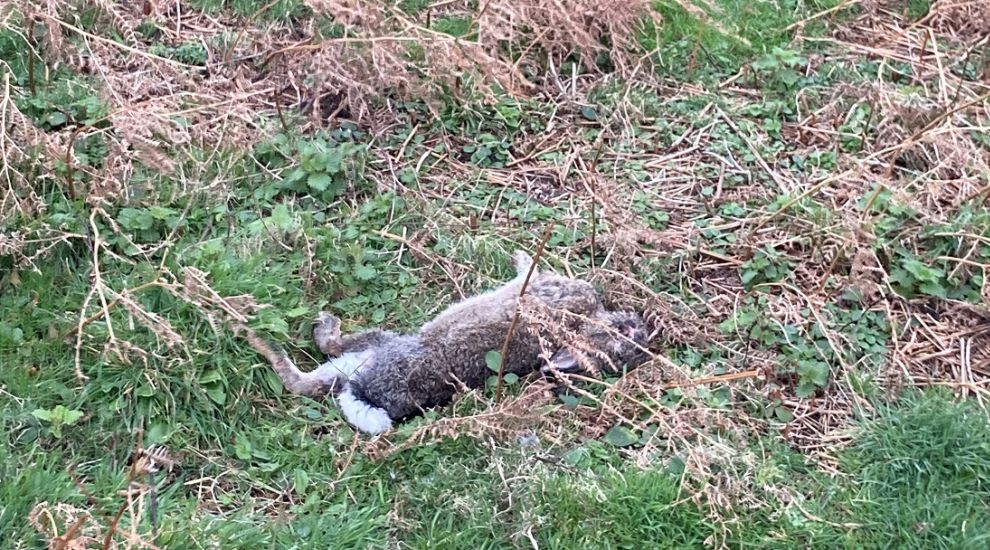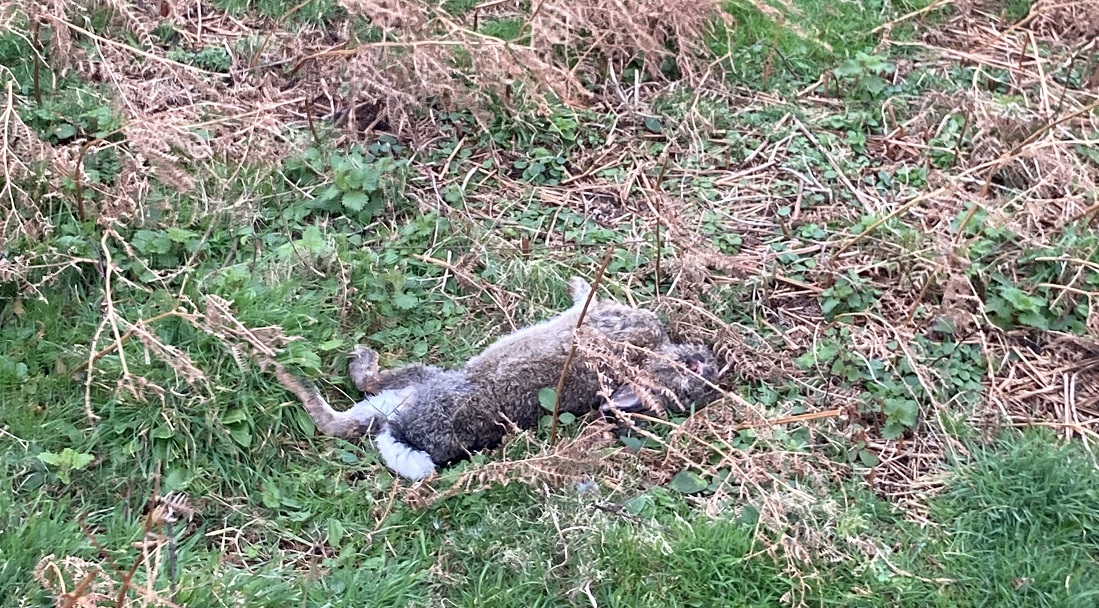


Islanders have been instructed not to touch ill or dead rabbits after a disease began sweeping through Jersey's wild population.
Owners of pet rabbits have also been warned to keep them enclosed to avoid contact with infected animals.
Over the past few weeks, there has been a sharp rise in the number of rabbits dying from myxomatosis – a highly infectious disease which tends to re-occur in areas every few years and often when rabbit populations are high.
While the virus poses no public health risk, islanders who find a rabbit they believe is unwell have been advised to contact the JSPCA on 724331.
If the JSPCA ambulance driver is busy, islanders are asked to wear gloves, put the rabbit into a box and take to the shelter.
Islanders should not to touch dead rabbits.

Pictured: A deceased rabbit on Noirmont Common, captured by a walker.
Caroline Terburgh, Deputy Chief Veterinary Officer for the Government, said: "This virus is rife at this time of year.
"I would encourage islanders with pet rabbits to keep them enclosed, so that they do not come in contact with wild rabbits.
"You can also speak to your vet about preventative vaccination against myxomatosis."
Over the Christmas period, dog walkers took to social media to share their concerns about the widespread casualties in rural areas.
One wrote: "We walked around Noirmont Common today. Sadly, there were literally dozens of dead and sick rabbits around – lots of rabbits with weeping eyes along the paths who didn't seem with it and many more dead all around the common.
"Quite worrying with dogs and I'm sure it would be traumatic if you are with young children. I'm sure there's a rabbit disease rampant up there and I really hope it can't be passed to dogs."
According to the World Organisation for Animal Health, the disease is characterised by the presence of tumours on the face and limbs of affected animals. This causes depression in animals and swollen eyes.
It is spread through fleas and mosquitoes that ingest the virus while biting infected animals then transmit the disease to other susceptible animals. It can also spread directly from animal to animal.
The virus only affects rabbits and poses no public health risk.
Data shows that myxomatosis tends to re-occur in areas every few years, often when rabbit numbers are high after several good mating seasons.
Comments
Comments on this story express the views of the commentator only, not Bailiwick Publishing. We are unable to guarantee the accuracy of any of those comments.